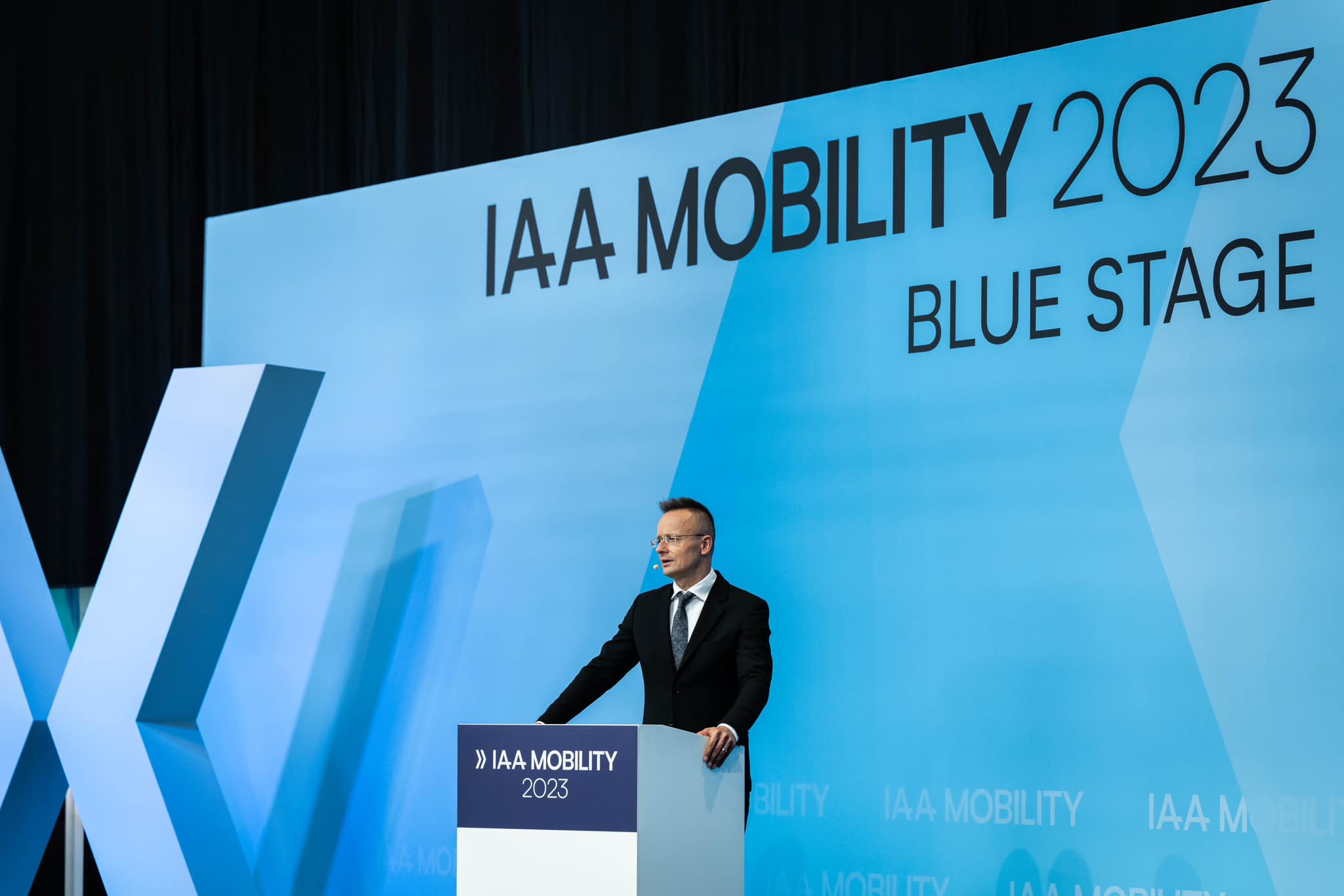One job created in the automotive industry can retain an additional 1.3 jobs through the supply chain and through workers' spending.Continue reading

Hungary benefits greatly from the strong cooperation between Chinese and German automotive companies, which is a guarantee to maintain economic growth despite all uncertainties and crises, the Hungarian Foreign Minister said in Munich on Tuesday.
Speaking at the International Motor Show (IAA Mobility), Péter Szijjártó said that if there is one country in the world whose economy is determined by the automotive industry, it is clearly Hungary.
One-third of Hungary’s industrial production is linked to this sector, generating a turnover of 30 billion euros and employing 170,000 people last year, while recording exports worth 20 billion euros,
he stressed.
The minister pointed out that in addition to Germany and China, Hungary alone will soon have production capacity for all three of Germany’s premium car brands (Audi, BMW, and Mercedes), with the Japanese Suzuki and German Opel brands already based in the country.
He explained that the electrification of the automotive industry is a fait accompli, the political decisions have been made and there is no turning back, so it is necessary to get ready for it, as this will be the most important development for the European economy in the future.
“This divides European countries into two groups: the winners and the losers of the transition,” he highlighted, adding that the first category could include those that can attract the most investments.
Szijjártó explained that while Western European manufacturers have developed the best electric cars, Eastern European companies are leading the production of the batteries needed to power them. This is shown by the fact that six of the top ten players in the sector are Chinese, three are South Korean, and one is Japanese.
This is the first time that a major branch of industry in Western Europe has become completely dependent on Eastern suppliers,
the minister said. He therefore welcomed the fact that Hungary has become an important meeting place for Eastern and Western investors. In this context, he deplored the so-called de-risking, the approach of some politicians to separate the European and Chinese economies.
We see de-risking as the real risk. The separation of the Eastern and Western economies, the separation of the Chinese and European economies is the risk for us here in Europe,
he underscored.
The minister also pointed out that five of the ten largest producers of electric batteries have already committed themselves to Hungary. Although Hungary ranks 95th in the world in terms of population, it is currently the fourth largest country in electric battery production and will soon be second. He said Chinese manufacturers are setting up shop in Hungary precisely because of the presence of German brands, as evidenced by the investments of CATL and Eve Energy.
There must be strong cooperation and interdependence between Chinese and German companies, this is also a reality, and we Hungarians benefit a lot from it, the Minister stressed. “This is the guarantee that we can keep our national economy on a growth path despite all the turbulence, all the uncertainties, and all the crises that the European economy is facing,” he added.
Finally, Szijjártó affirmed that Hungary sets investment and export records year after year, with electric batteries being the most important export item in the last 19 months.
Via MTI; Featured image via Facebook/Péter Szijjártó